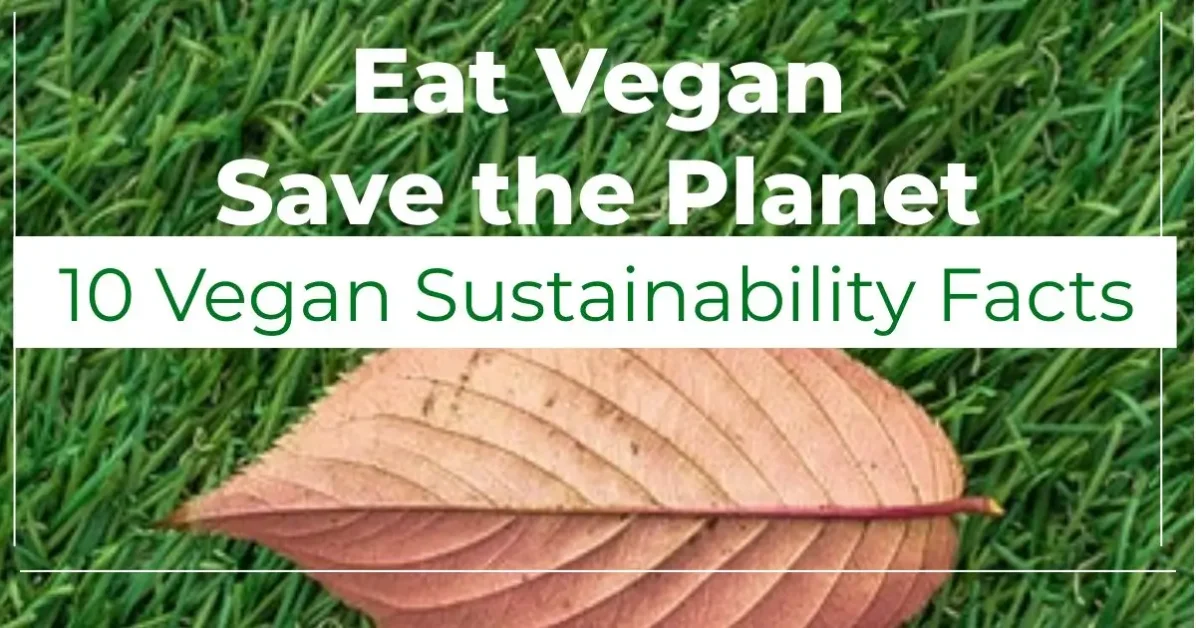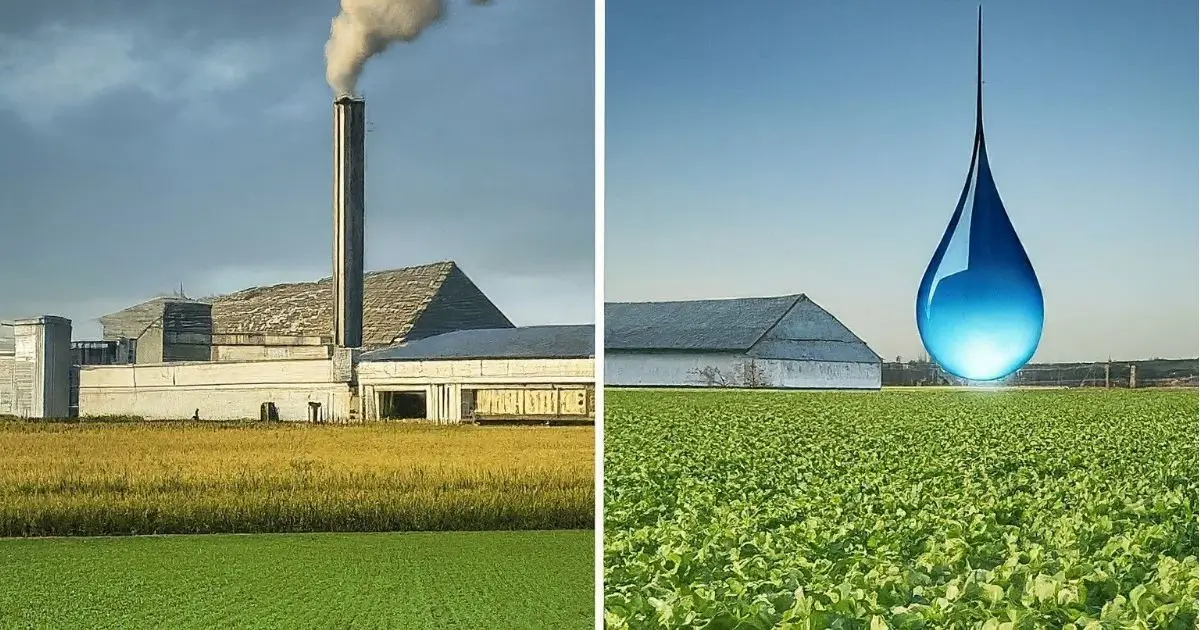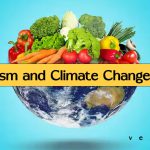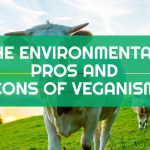Top 10 Vegan Sustainability Facts

In this article, we will talk about facts about vegan sustainability and how veganism can help the environment.
The concept of sustainability in today’s world is way more thoughtful and futuristic than it used to be in the previous decades.
In simple words, nowadays, people care about the future and sustainability of the environment much more than those who lived in the 1960‘s.
Back then, people had no idea about the threatening outcomes of a non-sustainable environment that we’ve been hearing on the news.
But as of now, we are living in the 21st century, the age of technology and knowledge, and because of that, we are supposed to choose the right path by having a plan for meeting the needs of both the present and the future.
If we don’t prioritize sustainability, the environment and the planet Earth itself, in advance, will no longer be habitable by 2100!
One of the best solutions for this matter is veganism.
You might wonder how a simple diet can change the current state of the world, and I’m here to explain this philosophy.
So, bear with me.
In this article you will read:
1. Environmental Impact of Animal Agriculture
Right off the bat, let’s compare gas emissions that are caused by vegan diets to non-vegan ones.
We refer to a few valid magazines.
According to The Guardian:
“The biggest difference seen in the study was for emissions of methane, a potent greenhouse gas produced by cattle and sheep, which were 93% lower for vegan diets compared with high-meat diets.”
“Researchers examined the diets of 55,500 people and found that vegans are responsible for 75 percent less in greenhouse gases than meat-eaters.”
“People who eat meat are responsible for twice (2.5 times) as many dietary greenhouse gas emissions per day as vegans.”
With that being said, you can literally see the fact that vegan diets cause way less gas emissions than animal-based diets.
In the process of meat production, animal farms produce enormous amounts of methane (CH4) and nitrous oxide (N2O).
Meat production requires so many different natural resources (mostly water and land) that sometimes they end up destroying a part of a forest just because they need more land, which is known as deforestation, and the environmental impact of this is the decrease of the carbon absorption by plants.
70% of livestock farms are dedicated to growing animal feed.
Now, we are going to show you the amount of CO2 produced in the process of producing 1 kg of meat:
| Beef | 27kg of CO2, this amount of CO2 is caused by CH4 produced by the cows and CO2 produced by factories. |
| Pork | 12kg of CO2 |
| Chicken | 6 to 7 kilograms of CO2 |
How to stop climate change?
There are many different actions that you can take to combat climate change.
Even though there are many different approaches to help the environment, one approach or solution can fix most of this problem.
And that’s veganism.
Vegan diets can fix a huge percentage of the climate change crisis mainly because they come with environmental benefits.
From less water waste and gas emissions to not killing innocent animals.
By going vegan you will automatically help the environment, simply because you aren’t breaking the cycle.
2. Protecting Water Sources
You probably have no idea how huge the water waste caused by animal agriculture is.
When we talk about the water waste that is caused by livestock farming industries, we are not just referring to the amount of water that is used for the animals’ water intake.
Besides the amount of water that animals drink, thousands of gallons of water are needed for the process of meat production.
According to 5vegan website:
“2,500 gallons of water are needed to produce 1 pound of beef.”
“The meat & dairy industry use 1/3 of earth freshwater”
Furthermore, we have to compare the water usage of vegan diets with animal-based diets.
Vegan Diets Use 5 Times Less Water Than animal-based/Meat-Based Diets; studies show that meat-based diets are known to be damaging to the environment. Also, the excessive water footprint of meat-based diets is a concern. European Commission Joint Research Centre (JRC) study has found that.
In a 2018 study by Oxford University, researchers found out that removing meat and other animal products from our diet can cut down 50% of water usage.
There’s another study by the Water Footprint Network that shows that the production of animal products requires way more water than plant-based products, and that proves the point that veganism can help save water.
Let’s bring in the numbers.
This table shows how much water is used to produce 1 kilogram of each specific type of meat:
| Beef | 15,400 liters of water |
| Pork | 6000 liters of water |
| Chicken | 4,300 liters of water |
To be more clear, we are also going to show you the numbers for the production of plants.
The amount of water needed for the production of 1 kg of these plants:
| Wheat | 1,300 liters of water |
| Potato | 290 liters of water |
| Vegetables | 322 liters of water |
| Fruits | 962 liters of water |
Based on what numbers say, a non-plant-based person particularly consumes 33 chickens, 15 pigs, 1 cow, and 11 fish in 1 year, which equals 1,500,000 liters of water, compared to an average vegan responsible for 300,000 liters of water.
By adopting a vegan diet, the world’s water usage will be so much lower.

3. Protecting Natural Resources
This issue is too vast to explain, mainly because animal agriculture critically affects too many different natural resources.
Let’s put land first. Did you know that everything related to animal farms occupies land in a certain way?
Starting with the land of the farm, livestock covers 45% of the Earth’s total land.
Even the livestock feed covers too much land.
When I say too much, I mean 1/3 of the Earth’s ice-free land!
Besides animal farms’ high water usage, they also cause water pollution by polluting the water in many different ways.
Even if we are going to talk about protein, we have to say that the production of plant-based protein needs way less land than animal protein, which stands for the fact that there is room for optimization since we can have the same amount of protein using less land.
So, as you can see, vegan diets save water and land and also cause way less pollution.
4. Protecting Biodiversity
Veganism helps the planet Earth by protecting biodiversity.
Deforestation is also a threat.
Here are some statistics from 5vegan website:
- 91% of Amazon Destruction is caused by Animal Agriculture
- 1-2 Acres of rainforest are cleared every second
- Acres of rainforest cleared:
palm oil = 26 million
animal agriculture = 136 million
As you can see, animal agriculture massively destroys rainforests and jungles.
For instance, the main reason behind deforestation in tropical regions like the Amazon is usually for animal feed.
They cut down trees and destroy animals’ natural habitats just to have more land in which to grow animal feed.
Veganism helps biodiversity by reducing the land needed for food production, which helps preserve natural habitats.
This action will put a stop to deforestation and will keep the jungles and forests safe.
Plus, veganism also takes away the pressure from other habitats.
Additionally, veganism can save soil since livestock farms cause soil degradation.
As I said earlier in the article, 70% of livestock farms are dedicated to growing animal feed.
If we had the chance to grow grain instead of animal feed, worldwide hunger would disappear, and nobody would be dying because of starvation.
We are not done with the advantages of veganism here; veganism can also save endangered animals from hunting since the high demand for animal products leads to the overhunting of animals.
Vegan diets as a whole never pollute the water and the weather, unlike non-vegan diets, which pollute everything with their waste.
Plant-based foods waste less energy than animal-based foods because they are mostly ultra-processed.
5. Reducing Food Waste
According to Vox, “We raise 18 billion animals a year to die.”
From farm to plate, one in four animals raised on factory farms is wasted!
Replacing meat with plant-based foods would increase food availability by using food resources for the production of human food, not animal feed.
The waste caused by meat production is so high that it isn’t even comparable to the production of plant-based foods.
6. Improving Overall Health
The are several health benefits that come with adopting a vegan diet.
First, we have to mention some science-based health benefits of vegan diets.
It’s been proven that vegan diets help with the weight loss journey.
Many new vegans have lost excess weight in the first few months of going vegan.
The other science-based health benefit is amazing; going vegan can protect you against certain cancers.
Now, let’s talk about the second part; we are going to bring out the list of diseases that you can dodge by going vegan.
First off, heart disease.
Studies have shown that vegans are at a lower risk of heart disease.
Second, arthritis.
Vegan diets help with increasing energy levels and easing joint swelling and pain.
The last disease is type 2 diabetes.
Vegan foods help regulate blood sugar levels, and that will prevent type 2 diabetes.
Other benefits are better digestion and better gut health, followed by helping the immune system.
Veganism has also helped a lot of people with many other diseases, such as obesity and fatty liver disease.
To learn more about this, you must read more about the connection between veganism and human health.
7. Human and Animal Rights
The negative impact of animal agriculture on worldwide peace is immeasurable.
Not only do animal farms violate every single unwritten rule that is in favor of the animals and their rights, but they also show that they do not care about humans either.
The only dietary solution to worldwide peace is veganism since the food that we eat affects our mentality.
And with a ruthless and arrogant mentality that doesn’t care about the suffering of the animals.
The statistics show that each individual who goes vegan can save 200 animals, 1.3 million gallons of water, and 1.5 tons of carbon emissions per year.
Veganism also shows that it has the potential to end world hunger.
Although world hunger is a multi-faceted problem that requires a multi-faceted solution, veganism can erase a lot of problems.
8. Carbon Footprint
Livestock animals cause 14% to 17% of global emissions.
Studies show that animal agriculture produces 65% of the world’s nitrous oxide emissions, which has a global warming impact that is 296 times greater than carbon dioxide.
Raising animals for food produces nearly 15% of total global greenhouse gas emissions, which is greater than all the transportation emissions combined. It also uses nearly 70% of agricultural land, which is a major contributor to deforestation, biodiversity loss, and water pollution.”
Vegan diets tend to have far lower carbon, water, and ecological footprints than animal-based diets.
The Humane League website has explained this really well:
“Just one plant-based meal can save the same amount of carbon emissions it takes to drive a car across the country. If that’s the impact one meal can make, it’s no surprise that following a plant-based diet full-time can result in a much smaller carbon footprint. And, if more and more individuals adopt a plant-based diet, this impact will create a huge shift in our food system, reducing our whole species’ greenhouse gas emissions and helping slow climate change.”
9. Thought-Provoking Inventions
Each year, the thought-provoking vegan inventions and alternatives become more incredible and flawless.
We all know that the main concept of veganism is alternating real meat with vegan alternatives, and we also know that most stores sell vegan meat.
But have you heard of other vegan alternatives that have nothing to do with food?
There are some outstanding inventions that people can’t even imagine.
For instance, who would have thought that one day we would have vegan leather?
To be honest, that’s mind-blowing to me.
Vegan leather (also known as eco-leather) is made from sustainable materials like fruit waste and recycled plastic.
Vegan leather is an alternative to animal leather, and it is made without using any sort of animal products.
The thinking process behind these inventions is based on making the same product without killing innocent animals.
10. Sustainable Fashion
All of us have seen the brutality of the fashion industry, which showcases a much bigger threat than animal farms since the subject is no longer about food and hunger. Killing animals for clothes isn’t justifiable at all, mainly because it’s all about appearance and looking luxurious.
This mindful action is all backed up by responsible efforts within the fashion industry to reduce its negative and wrecking environmental impacts.
Furthermore, the lifestyle attached to sustainable fashion benefits everything, including animals, the environment, people, and natural resources.
With that being said, by supporting vegan brands, we can get one step closer to sustainability, and we can also cut off the cycle of killing animals for clothes.
Wrong Assumptions About Veganism
You might have heard a lot about the cons of being vegan on social media lately, especially from companies that profit from selling animal products.
Things like challenges as a vegan, lack of protein in vegan diets, having different types of deficiency, etc.
But you have to keep in mind that veganism as a whole is based on a healthy lifestyle rather than just a temporary trend or movement.
And the best-unbiased advice that I can give you is to do your own research.
In the world that we live in today, social media plays a big role, and because of that matter, social media and influencers have a huge impact on the way we think.
Since there has been a lot of controversy about veganism, the best go-to option for everyone is to try vegan diets on their own, despite what others say.
What I actually mean is this:
You have to read about veganism on your own and then consider doing things rather than listening to false propaganda that is pushed by the media.
The media only cares about profit, and that’s why they want you to forget about the innocent animals.
In the case of new vegans or even people who want to start their vegan journey, we can say that you should keep in mind that you are in control of your life, and that’s why you have to think and decide first, and then you can take action.
But if you are wondering about starting a vegan diet, just go vegan for one day so that you can have your own point of view instead of what you hear on the internet.
Final Words
As we always say, veganism isn’t just a diet; it is more like a lifestyle because all vegans try to live like real humans.
A real human cares about the world and worldwide peace.
This means that we care about animals and, most definitely, other humans, which shows our humanity.
If all the people around the world were vegan, we would no longer have wars since peace is important to us.
As you can see in the title, the main idea of writing this article was to show the sustainability of veganism, followed by the top 10 vegan sustainability facts.
We tried our best to prove the sustainability of veganism to you so that you can understand the everlasting advantages of veganism for everyone.
Since the world has shown us that the key to sustainability is veganism.
Please share your opinion in the comment section.
You can also read about different people’s vegan journeys and even share your own experience with us in the comments.




